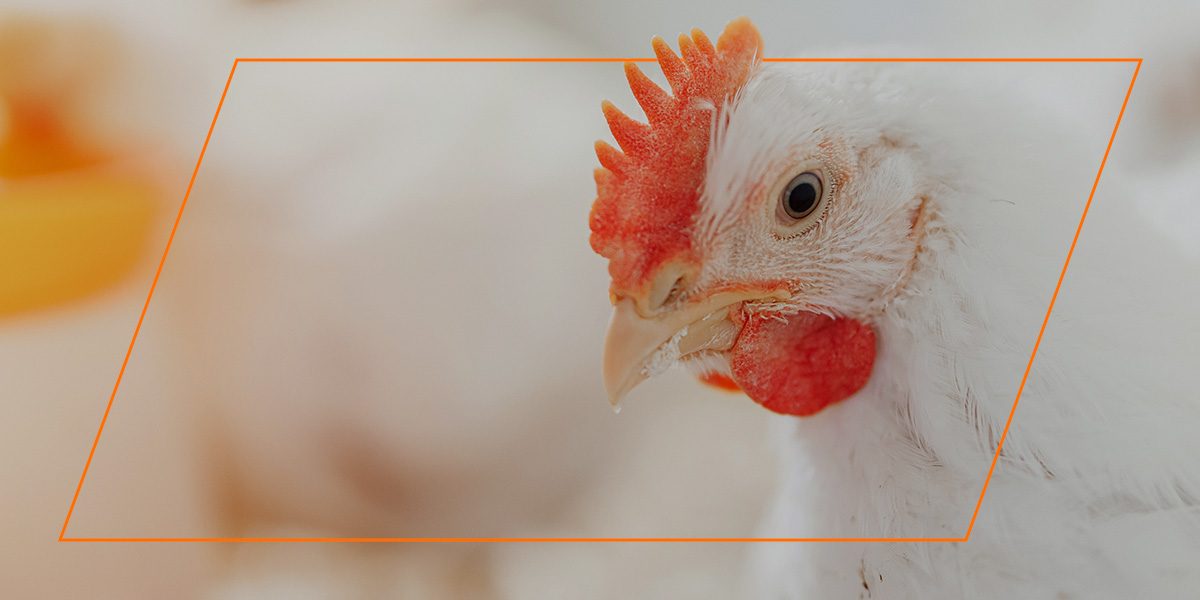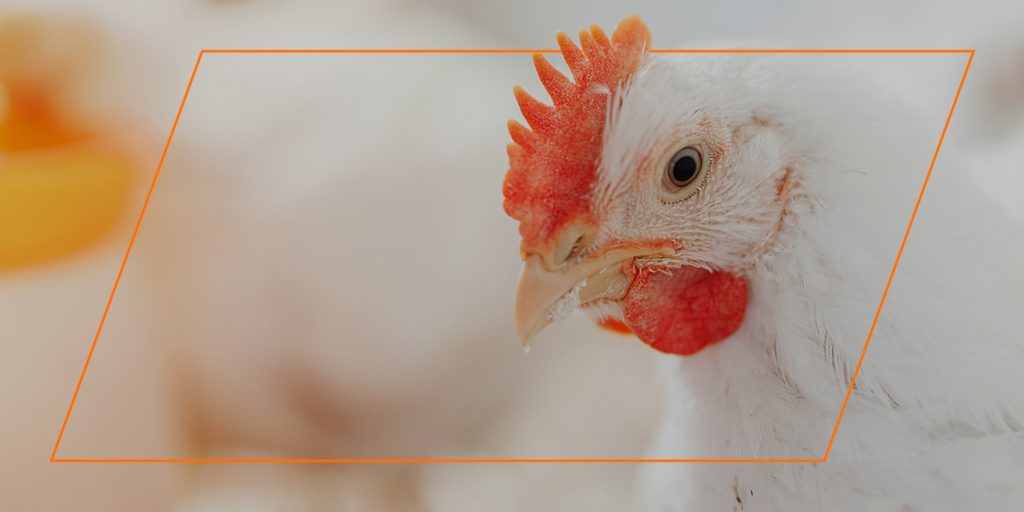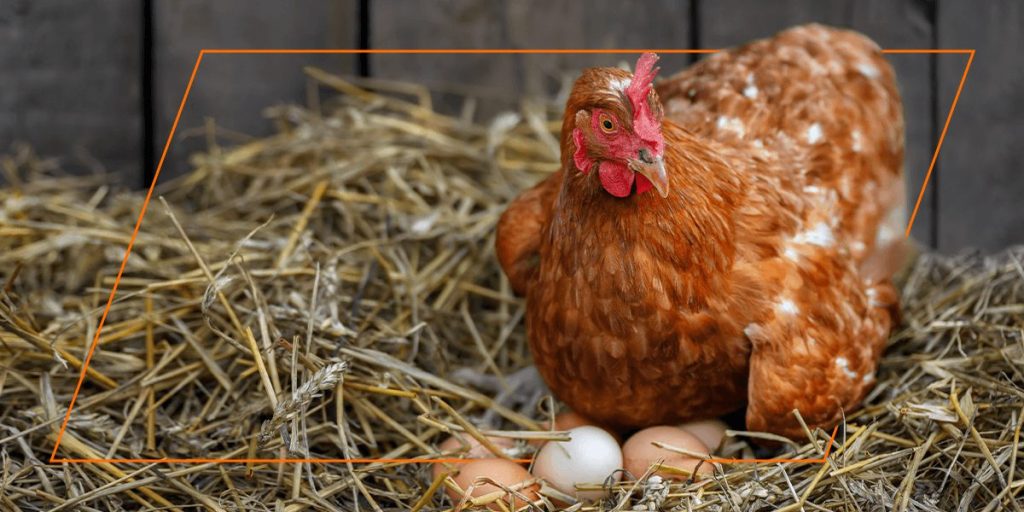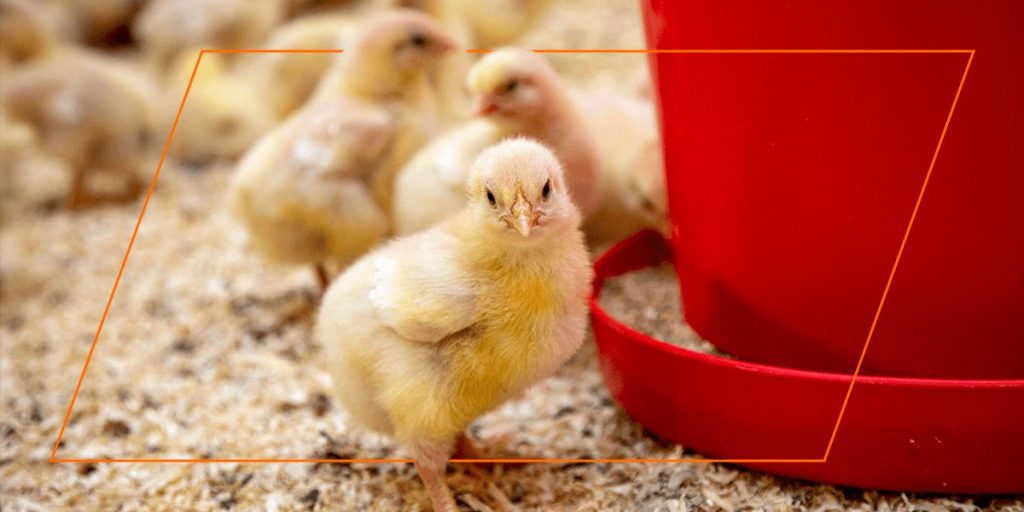Different feed types affect how well a chicken grows. They also impact the quantity, quality, and shell strength of the eggs they produce. Generally, high-quality feed leads to higher feed intake and growth of chickens, providing the right nutrients they need.
What Is the Impact of Feed Quality on Egg Production in Chickens?
The quality of feed can impact everything from the size of the eggs to the strength of the shells your chickens produce:
Egg Quantity
Quality feed can increase egg production. Chickens need a diet rich in nutrients, especially protein and calcium, to consistently lay eggs. Protein helps form the egg itself, while calcium helps develop the shell. Optimized feed or certain formulations, usually those with certain amino acids, can lead to more egg output. Studies find that a deficiency in lysine or methionine — two essential amino acids — can limit the number of eggs your chicken produces.
Egg Quality
Balanced nutrients in your chicken’s feed lead to premium eggs, helping them produce larger eggs with vibrant-colored yolks and the correct consistency of egg whites. For example, feed that contains xanthophylls can enhance the color of the yolk and make it more appealing to consumers. A well-nourished hen is likelier to lay eggs of the best nutritional value.
Egg Size
Feed quality directly affects the size of the eggs your chicken lays. It ensures your hens have the resources to produce larger eggs, providing more nutrients for the consumer and stronger chicks if fertilized.
Egg Shell Strength
Your chickens rely on calcium and minerals in their diet to lay strong, durable eggshells. Calcium is the main component of eggshells, so their diet must include it to produce thick shells that can’t break easily. Calcium is also important for hatchability and overall nerve and muscle function in the hens. Adding calcium-rich sources like limestone to your hens’ diet can help you get better-quality eggshells.
Signs of Poor Feed Quality in Chickens
You can usually spot signs of poor feed quality in your chickens, including fewer eggs being produced, fragile shells, or changes in yolk color or white consistency. Here’s are some signs to watch for:
- Reduced egg production: If your hens are laying fewer eggs than usual, it could be a sign their diet lacks essential nutrients.
- Fragile shells: Thin, fragile shells that break easily are warning signs of calcium deficiency — usually from poor feed quality. You might also notice more cracked or broken eggs than usual.
- Change in yolk or egg whites: Changs in yolk color and egg consistency can indicate a problem with feed quality. Pale yolk, instead of vibrant orange, could mean there’s a lack of carotenoids in their diet. Similarly, watery or thin egg whites could be a sign of protein deficiency or an imbalance of nutrients.
- Change in the hen’s health: If you notice your hen is less active or their feathers are dull, it could be a sign there’s something wrong with their diet. Also, watch if they get sick more often than usual, as feed quality influences their immune system.
Recognizing these signs will help you make the right changes in your chickens’ diet. That way, you can protect their health and overall productivity.
Why Feed Quality Matters for Egg Production
Feed quality matters because it directly impacts your chickens’ long-term health and can increase egg production. Poor feed can lead to fewer eggs being produced, weakened immune systems in your chickens, and higher susceptibility to disease. When hens aren’t getting the necessary nutrients, their bodies will prioritize survival over egg-laying, so you’ll see a decline in production.
When you invest in premium feed like Nature’s Best Organic Feeds, you can appreciate more cost savings in the long run. With higher-quality feed, you get more eggs and healthier hens — which can outweigh the initial cost of the feed. Premium feeds are formulated with a balance of nutrients, making sure your hens have what they need to thrive and lay consistently.
How to Get Chickens to Lay Eggs
A balanced diet, a safe nesting space, and supplemental lighting when needed can ensure your chicken lays eggs consistently.
Feed Them a Balanced Diet
Make sure your hens have access to layer feed, calcium sources like crushed oyster shells, and plenty of fresh, clean water. A balanced and varied diet is best, keeping them healthy and helping them lay eggs.
Provide a Comfortable Nesting Environment
A safe and secure nesting environment is important — chickens usually prefer to lay their eggs in spaces that feel hidden and calm.
Consider Supplemental Lighting
Providing supplemental lighting when there’s shorter daylight, especially in the winter, can help your chickens lay eggs. Chickens naturally lay more eggs during summer days with 16 hours of daylight.
What to Feed Chickens to Make Them Lay Eggs
Providing your hens with the best possible nutrition will set them up for success and help you get a steady supply of quality eggs. Be proactive by getting premium food from Nature’s Best Organic Feeds. Our organic, non-medicated, Non-GMO Project-Verified feed can provide the nutrition your chickens need and increase egg production.
Use our store locator tool to find the closest Tractor Supply near you where you can buy our organic poultry food.




